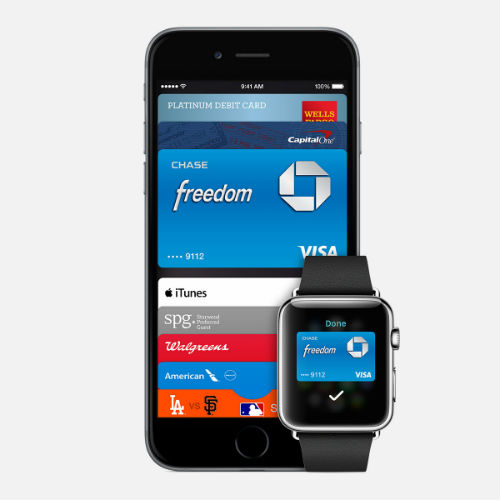Submitted by Jon Reed on
On Tuesday Apple (NASDAQ: AAPL) reported that dozens of companies have signed up for Apple Pay over the past several weeks. The list of companies accepting Apple's e-wallet, which started with financial giants Visa, Mastercard and American Express among others, has grown continuously since the project began in early 2013. When it went live in October, over a million credit cards were registered within the first three days, which rocketed its status to the largest mobile payment system in existence.

According to The New York Times, recent sign-ups including Barclaycard, SunTrust, USAA and ten banks, including TD Bank, all support the payment system as of today. Other new additions include Staples, which now accepts Apple Pay at 1,400 of its locations, grocers Winn-Dixie and Albertsons, and the AmWay center, home of the Orlando Magic. A list of financial institutions that already support Apple Pay can be found here.
In all, Apple Pay now supports credit cards that account for 90% of all credit card transactions in the U.S. Though at this point Apple Pay only accounts for a small fraction of total transactions, many analysts are optimistic about its future, and not just its own, but that of the mobile payments industry as a whole. Forrester Research expects mobile payments to reach a volume of $142 billion by 2019, with Apple accounting for $34 billion of it.
Apple Pay allows users to make mobile purchases at brick-and-mortar retail locations via the NFC technology found in the iPhone 6, iPhone 6 Plus and Apple Watch. Customers can simply hold their device in close proximity to a contactless payment terminal to complete their transaction.